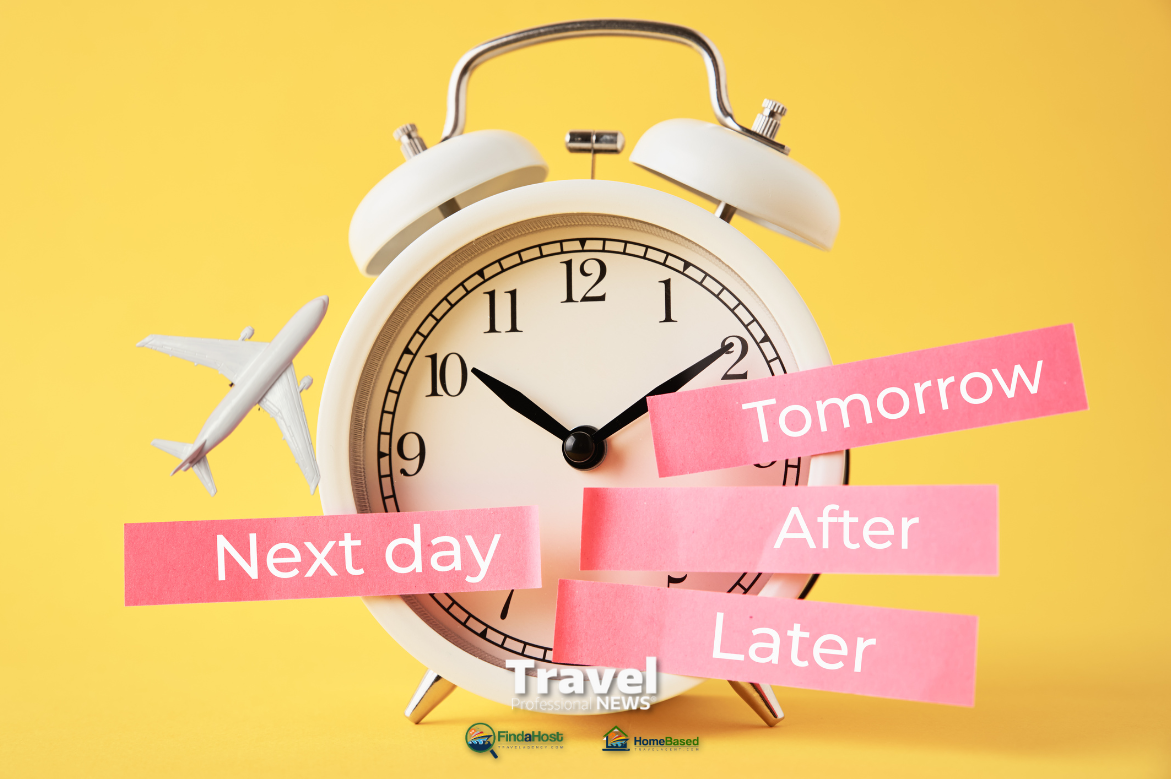Are You Racing with the Clock?
Written By: Scott Koepf, Chief Strategy Officer (CSO)– Cruise Planners
I am often asked one of the following questions, and the answer to all three is the same.
“Is there one thing that all successful Travel Advisors have in common?” Or
“What is the most important skill that leads to success?” Or
“What can I do, starting today, to reach my goals?”
While there are many hats that each Travel Advisor wears and multiple skills that need to be learned and developed, I would say that the answer to these questions is the primary element needed for success in any business career but maybe even more important if you work independently or work from home. The answer is simple but putting it into practice requires extraordinary discipline. Is it Marketing? Sales? Customer Service? Product Knowledge? Financial Acumen? The answer may surprise you, but it can determine your success in each of those areas.

The answer is Time Management or the constant challenge to get more done in less time! That never ending quest is expressed so well in this song from an old classic Broadway show, The Pajama Game:
Hurry up, hurry up, hurry up, hurry up
Can’t waste time, can’t waste time, can’t waste time, can’t waste time
When you’re racing with the clock
When you’re racing with the clock
And the second hand doesn’t understand
That your back may break and your fingers ache
And your constitution isn’t made of rock
It’s a losing race when you’re racing with the
Racing, racing, racing with the clock
Does this sound like an anthem you sing to yourself daily? Time Management is not a secret tip and not sexy and not something you can do once and hit your goals. When I answer the questions posed above in person, the reaction is sadly similar. There is a nod of agreement with a hint of guilt and acknowledgement that the questioner may have known the answer all along but had hoped there was something else I would come up with. Nope. Every skill and all knowledge of every aspect of this business have one thing in common. They take time. Scheduled, calendared, and focused time.

There are some excellent books available on how to be more efficient and to be more productive with the only truly finite resource we all deal with. As much as I recommend studying and implementing various habits to squeeze more out of each hour, it is important not to end up like someone fixated on time as described by another song from The Pajama Game appropriately named, Think of the Time I Save:
I’m a time study man, and a time study man can’t waste time.
For a time study man to waste time, is a crime.
So I’m ruled by the tick tick tock.
And I live my life by the clock.
I live my life by the tick tick tock of the clock.
While we should strive to improve our use of time, there is one aspect of our business which is ironically the opposite of most efficiency goals. Selling travel to individuals is primarily a function of building trust between you and the consumer. Although there are many techniques and suggestions as to how to build lifetime customers, the one thing that is irrefutable is that trust takes time.
Most travel advisors would hate to be called a ‘Pushy Salesperson’ and we think of that person as someone who pushes their product too hard. However, the negative stereotype is more about pushing time than product. Push to close, sign, pay and get the credit card in as little time as possible. Therefore, in all other areas of your business you can Race with the Clock and Think of the Time You Save but when it comes to dealing with customers it is imperative to force yourself to not ‘push’ your time with them.

The sales process is made up of steps and the goal for each step is to just get to the next step, not to get through all of the steps as fast as you can. For example, the qualifying step should not have any time restraints and the more time spent on this step, the more likely trust and therefore a booking will be the result.
Time Management then is not just getting more things done in less time, it is understanding when and how to use the time you have. In summary, I recommend that you do everything to save time on every aspect of your business except when you are talking to and working with your clients, who should be the primary beneficiaries of that saved time!


